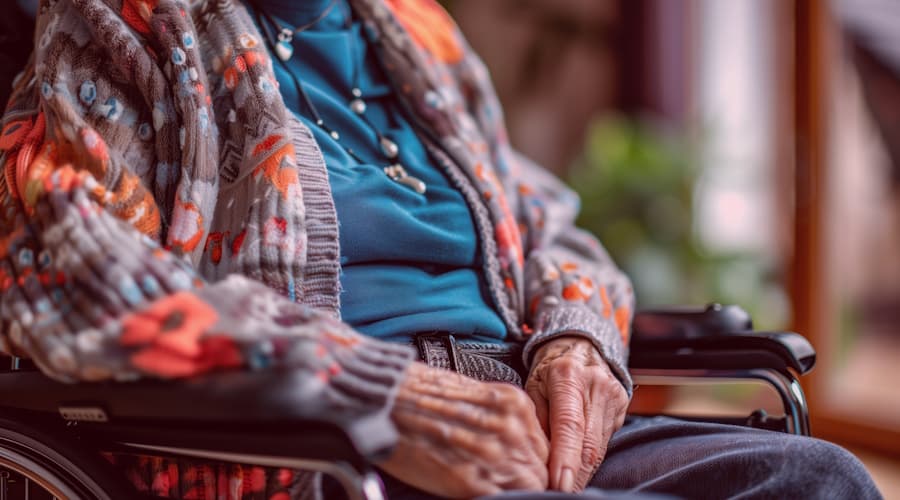How Much Does 24/7 In-Home Care Cost Per Month
When considering the best care options for a loved one, understanding the costs associated with 24/7 in-home care is crucial.
In Pennsylvania, the cost of providing continuous, around-the-clock care in the comfort of one’s home can vary widely depending on several factors.
This article will delve into the specifics of 24/7 in-home care costs, the types of services included, and the financial options available to help manage these expenses.

Understanding 24/7 In-Home Care
What is 24/7 In-Home Care?
24/7 in-home care services involves continuous support for individuals who require constant assistance and supervision. This type of care is provided by professional caregivers who work in shifts to ensure that someone is always available to help with daily activities, medical needs, and emergencies.
Types of Care Provided
- Personal Care: Assistance with activities of daily living (ADLs) such as bathing, dressing, grooming, and toileting.
- Medical Care: Skilled nursing care, medication management, wound care, and monitoring of health conditions.
- Companion Care: Social interaction, engaging in activities, and providing emotional support.
- Household Assistance: Light housekeeping, meal preparation, and running errands.
Factors Influencing the Cost of 24/7 In-Home Care
Level of Care Needed
The cost of in-home care can vary significantly based on the level of care required. Individuals needing basic assistance with ADLs will generally incur lower costs than those requiring skilled nursing care or continuous medical supervision.
Location
Costs can also vary by location within Pennsylvania. Urban areas such as Philadelphia or Pittsburgh might have higher rates compared to rural areas due to the higher cost of living and greater demand for services.
Caregiver Qualifications
The qualifications and experience of the caregivers can impact costs. Licensed practical nurses (LPNs) and registered nurses (RNs) providing skilled medical care will charge more than home health aides or personal care assistants.
Type of Care Services
The specific services included in the care plan, such as physical therapy, medication administration, and specialized medical care, will also affect the overall cost.
Average Costs of 24/7 In-Home Care in Pennsylvania
Hourly Rates
In Pennsylvania, the hourly rate for in-home care can range from $20 to $35 per hour, depending on the type and level of care required. For 24/7 care, this translates to an average monthly cost of:
- Basic Care (Personal Care/Companion Care):
- $20 per hour x 24 hours x 30 days = $14,400 per month.
- Skilled Nursing Care:
- $35 per hour x 24 hours x 30 days = $25,200 per month.
Monthly Rates
Some home care agencies offer discounted rates for continuous 24/7 care. These packages can range from $12,000 to $20,000 per month, depending on the services included and the level of care required.
Comparing Costs: In-Home Care vs. Assisted Living Facilities
When comparing the cost of 24/7 in-home care to other senior care options, it’s important to consider the benefits and drawbacks of each.
Assisted Living Facilities
Assisted living facilities provide a residential setting with access to personal care, meals, and social activities. The average cost of assisted living in Pennsylvania is around $4,000 to $6,000 per month. However, this option might not offer the same level of personalized, one-on-one care that in-home care provides.
Nursing Homes
Nursing homes offer 24/7 medical care and supervision in a more clinical setting. The average cost of a nursing home in Pennsylvania ranges from $8,000 to $10,000 per month for a semi-private room, and $10,000 to $12,000 per month for a private room.
Financial Options for Paying for 24/7 In-Home Care
Long Term Care Insurance
Long term care insurance can help cover the costs of in-home care. Policies vary, so it’s important to review the specific coverage details and eligibility requirements.
Health Insurance
While traditional health insurance typically does not cover long-term in-home care, some policies might cover short-term care following a hospitalization or surgery.
Medicare and Medicaid
Medicare generally does not cover 24/7 in-home care, but it may cover short-term skilled nursing care or home health care services under specific conditions. Medicaid, on the other hand, may cover long-term in-home care for eligible low-income individuals, depending on the state’s specific programs and requirements.
Veterans Benefits
Veterans and their families may be eligible for benefits through the Department of Veterans Affairs (VA) to help cover the costs of in-home care.
Private Pay
Many families choose to pay for in-home care out of pocket. This option provides the greatest flexibility in choosing services and caregivers but can be financially demanding.
The cost of 24/7 in-home care in Pennsylvania can range significantly based on the level of care, location, and specific services required.
While it is generally more expensive than assisted living facilities, it offers personalized, continuous care in the comfort of the patient’s home. Understanding the various factors that influence costs and exploring available financial options can help families make informed decisions about the best care for their loved ones.
Choosing between in-home care and other senior care options involves careful consideration of the patient’s needs, preferences, and financial situation.
By evaluating the costs and benefits, families can ensure they select the most suitable care solution, providing their loved ones with the highest quality of life and support.
Service Areas
All American Home Care proudly serves multiple locations across Pennsylvania, ensuring that high-quality 24/7 in-home care services are accessible to those in need. Our service areas include:
Learn More About Our Home Care Services
For a comprehensive overview of our offerings, visit our home care services page. All American Home Care is committed to providing top-notch, compassionate care services to meet the diverse needs of our clients. Contact us today to learn more about how we can support you and your family.
Additional Resources:




